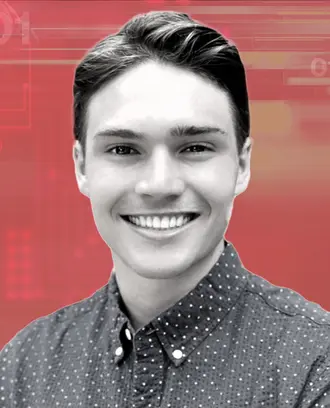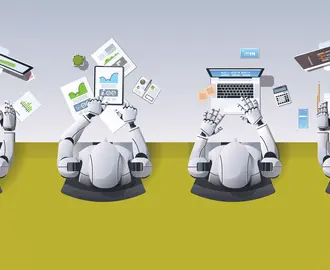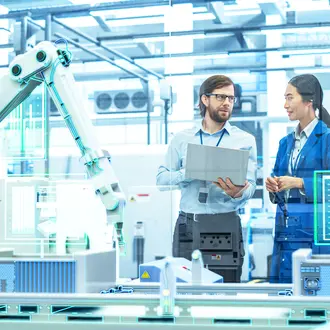Artificial Intelligence
In ‘Superminds,’ an argument for calm about robots, artificial intelligence, and jobs
“Superminds” aren’t new. But with the support of computers they can do a lot more. An MIT Sloan expert on collective intelligence says that’s a good thing.
Superminds are groups of people working together — in hierarchies, democracies, markets, communities, or ecosystems. Professor Thomas W. Malone, director of the MIT Center for Collective Intelligence, analyzes how computers can make these groups even more powerful in his new book, “Superminds: The Surprising Power of People and Computers Thinking Together.”
In the book, Malone dispels the popular perception that work will be automated out of existence (for better or worse, depending on who you’re talking to). Instead, computers, robots, and artificial intelligence will help our superminds make better decisions and solve big problems, from better corporate strategic planning to mitigating the damage of climate change.
And how will it all come together? In an interview, Malone struck a positive note on the future and our place in it.
People and computers will work together, not against one another.
“The ongoing debate about how many and what kinds of jobs smart machines will leave for us humans to do in the future is missing a very important point. The automation of human work in the past hasn’t led to long-term, massive unemployment. Instead, it has allowed humans and machines together to do new things that couldn’t be done before, and that’s what is likely to happen now, too,” Malone said. “Superminds composed of people and computers working together will be able to do many new things that neither can do alone.”
For example, think about clothing company Stitch Fix, which uses both personal stylists and data science to predict exactly which outfits people want to wear.
Computers will help superminds perform the same mental processes that happen inside individual minds.
“The book includes examples of how computers can help create smarter superminds for tasks such as corporate strategic planning, product design, predicting terrorism, solving criminal cases, and medical diagnosis and treatment,” Malone said.
Most of these examples are organized in terms of the cognitive processes they involve for the supermind: deciding, creating, sensing, remembering, and learning.
As such, we shouldn’t worry too much about robots and artificial intelligence taking away jobs.
“We should probably relax about this,” Malone said. “There are a number of reasons why jobs probably won’t go away as fast as many people expect, and more new jobs will probably be created than destroyed. So it’s unlikely that we will have long-term unemployment. But we do need to help displaced workers during the transition period. For example, this could include retraining workers, more effectively matching workers to jobs, and if necessary, providing financial support for people who are no longer able to support themselves.”
Human-level artificial intelligence is probably further away than many people think.
“All of today’s most advanced artificial intelligence programs are only capable of specialized intelligence — doing specialized tasks like recognizing faces, playing ‘Jeopardy,’ or driving cars,” Malone said. “But any normal five-year-old child has more general intelligence — the ability to learn and do many different kinds of things — than even the most advanced computers.” In other words, computers aren’t as versatile as humans.
Malone expects that human-level artificial intelligence is probably many decades away. “The media has led you to believe that it’s closer than it really is,” he said. “It’s easy to overestimate the potential for AI because it’s easy for us to imagine computers as smart as people. Our science fiction is full of them. But it’s much harder to create such machines than to imagine them. On the other hand, we often underestimate the potential for hyperconnectivity because it’s probably easier to create massively connected groups of people and computers (like the internet and social networks) than to imagine what they will actually do.”




